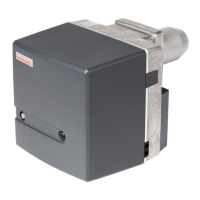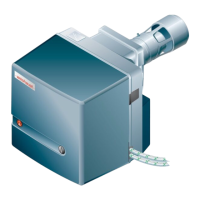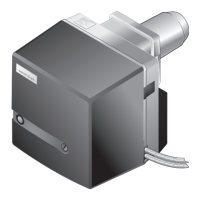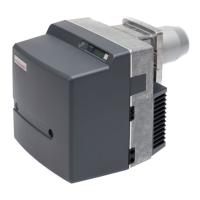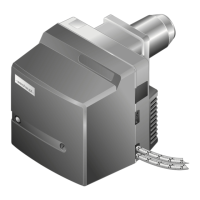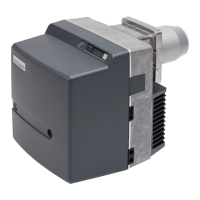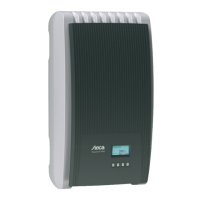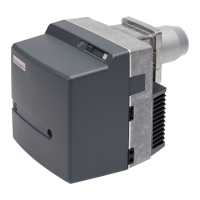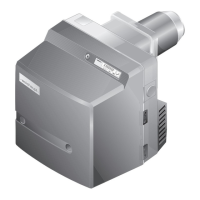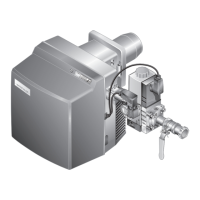Do you have a question about the Weishaupt WL5/1-B H and is the answer not in the manual?
Identifies the intended audience for the manual, including operators and qualified personnel.
Explains important safety symbols and their meanings to prevent injury and damage.
Outlines conditions under which guarantee and liability claims are excluded.
Specifies the intended use of the burner and its suitability for specific heat exchangers.
Details essential safety precautions for operation, maintenance, and electrical connections.
Defines restrictions on modifying the equipment and the requirement for manufacturer approval.
Covers noise emission considerations and guidelines for environmentally friendly disposal.
Explains the coding system used to identify the burner's specific model and features.
Details the importance of the serial number for product identification and customer service.
Describes the operational principles of air supply, oil supply, and electrical components.
Outlines the step-by-step process the burner follows during operation and shutdown.
Presents detailed specifications including approval, electrical, ambient, fuel, emissions, rating, dimensions, and weight.
Specifies requirements for burner and heat exchanger matching and installation location.
Provides guidance and tables for choosing the correct nozzle based on burner capacity and pressure.
Details the steps for mounting the burner, including flange gasket and optional 180° rotation.
Covers the requirements and procedures for connecting the oil supply to the burner.
Explains the process and safety precautions for connecting the burner electrically.
Describes the functions of the illuminated push button on the combustion manager.
Explains the meaning of different illuminated push button colors and their operating conditions.
Lists essential conditions and checks required before starting the commissioning process.
Details how to connect pressure and flame signal measuring devices for calibration.
Guides on determining and setting diffuser, air damper, and mixing pressure values.
Explains the procedure for starting the burner and adjusting its combustion parameters.
Describes final checks, operator information, and annual servicing recommendations.
Details methods for checking excess air, flue gas temperature, and flue gas losses.
Provides essential safety warnings and general notes before performing servicing.
Outlines the recommended service procedures and design lifespans for various components.
Illustrates the different service positions for accessing and working on the burner components.
Step-by-step instructions for removing an old nozzle and fitting a new one.
Details the procedure for removing and refitting the nozzle shut-off mechanism.
Explains how to set the correct distance and position for the ignition electrodes.
Describes the steps required to safely remove the mixing head assembly.
Outlines the procedure for removing the heat exchanger and temperature switch.
Guides on setting the nozzle distance and basic adjustments for the mixing head.
Details the steps to remove the air regulator and its housing.
Provides instructions for removing and installing the oil pump, including coupling alignment.
Explains how to remove and reinstall the fan wheel, ensuring correct alignment.
Describes the procedure for safely removing the burner motor.
Details the process for replacing the oil pump filter and gasket.
Explains how to safely replace the fuse in the combustion manager.
Describes how the burner indicates faults via the illuminated push button and lists common error codes.
Lists common operational issues and their corresponding causes and rectification measures.
Provides a table for converting pressure units between Bar, Pascal, kPa, and MPa.
Presents the electrical wiring diagram for the burner's components and connections.
Offers guidance on planning the oil supply system, including suction resistance and height differences.
